Media coverage is one of the most effective ways to grow a B2B brand’s reputation and increase awareness with target audiences. While PR is an essential marketing tool, it’s important to put the right foundations in place first to make sure you land the right message in the public domain.
As billionaire investor Warren Buffett wisely said, “It takes 20 years to build a reputation and five minutes to ruin it. If you think about that, you’ll do things differently.”
Media training is an effective way for the key stakeholders in your business to learn how to clearly convey brand messages with the right positioning and in the most appropriate tone to develop beneficial relationships with audiences.
Let’s take a look at what media training involves and the many benefits it brings to a growing B2B brand.
What is media training?
As the name suggests, media training is the process of preparing spokespeople within your company to communicate effectively with the media.
Practising common interview scenarios can help develop the necessary skills to create a positive public image for your brand and ensure your key messages are impactful and reinforce a company’s positioning.
7 benefits of media training for a B2B brand
1. Gain a solid understanding of how the media works
Media training will give your business an overview of how the media works and the different ways in which publications collate and report the news. Understanding these differences gives you a competitive advantage as your spokespeople can tailor each interaction with a journalist to ensure a good outcome. What’s more, a greater understanding of the operational side of journalism increases your chances of working more effectively with journalists and securing stronger features.
2. Learn what makes a newsworthy story
Knowing what makes a story newsworthy in the eyes of a journalist can empower your business to shape a news story and give it the best possible chance of being covered by media outlets. For example, journalists are always hungry for news that is timely or has a human interest element.
3. Teaches your spokespeople to speak in soundbites
It’s not unusual for a half-hour interview to be condensed to a couple of key quotes. Media training will give your spokespeople the confidence to speak succinctly, hit the right tone, and be conscious of body language. As a result of this stronger delivery, the focus will remain on your message.
4. Ability to handle difficult questions
An unprepared response to a tricky question from a journalist can, as Warren Buffet said, undo a brand’s reputation. One aspect of media training is preparing for unexpected questions with prepared answers. The questions may never arise, but if they do your spokespeople will feel confident to respond.
5. Retaining control of the interview
Media training can help give your spokespeople the skills and composure to get the desired outcome from an interview. Journalists may have a different agenda, but having a clear focus on what you want to achieve from the interview can help ensure the discussion aligns with your objective. If you control the interview, you control your reputation.
6. Forward-thinking approach
If, heaven forbid, your company gets embroiled in a media crisis, businesses with the foresight to undertake regular media training will be in a stronger position to respond quickly and potentially save the reputation of their brand. That’s why you should think of media training as a forward-thinking necessity.
7. Maintain brand reputation
One common mistake is to view media training as a low priority that businesses roll out once and are set for life. In our ever-evolving media landscape, your media skills could quickly become outdated unless you regularly top-up your media training to keep pace.
Bite-sized takeaway
Media training could be one of the best business decisions your company makes to strengthen its positioning. Focusing on what makes your brand unique won’t just strengthen your media appearances, but will help ensure that your key messages are consistent across all media and marketing channels.
As a result, your business will have a stronger positioning in the B2B marketplace, and you will have effective spokespeople on hand as and when needed to provide expert commentary.
Find out more about Media Training on our PR and Communications page or get in touch with us today.




